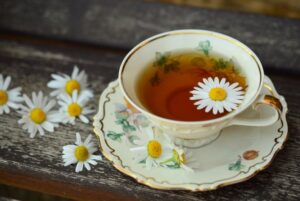
Image through congerdesign from Pixabay
As households experience getting in combination for most probably the primary shared pot of tea in a yr – simply in time for International Tea Day – a brand new impartial analysis learn about commissioned through the Tea Advisory Panel has discovered that six in 10 Brits proportion the similar tea consuming conduct as our oldsters or kids.
The panel believes this makes tea a really intergenerational drink and person who’s filled with top-to-toe well being advantages – from cognitive and mind well being to coverage of middle and intestine serve as.
Dietitian, Dr Carrie Ruxton, from the Tea Advisory Panel stated: “As neatly as being widespread around the ages, tea supplies distinct advantages for each and every technology. Studies display that operating age adults who drink tea enhance their psychological focal point and reminiscence, whilst older adults’ get pleasure from decrease blood drive and a discounted chance of middle illness. Even kids over the age of 4 years – usually given milk or comfortable beverages – can get a well being merit through switching to milky unsweetened tea because it comprises herbal fluoride which protects tooth.
“Tea is also proven to have gut health effects, as noted in a research review published in the journal, Nutrients. Drinking green tea boosted gut levels of Bifidobacterium – a healthy strain of bacteria linked with metabolic health – with effects seen after just two weeks. This could particularly help women who tend to suffer digestive discomfort more often than men.”
GP, Dr Gill Jenkins, provides: “Another review just published in the Journal of Human Nutrition confirmed the brain and cognitive benefits of regular tea drinking. The secret is the natural elixir of polyphenols, caffeine and L-theanine which have been shown to influence the brain from adolescence to old age. Indeed, in the new poll commissioned by the Tea Advisory Panel, more than eight in 10 adults say drinking tea helps to improve their mood, while four in 10 claim it keeps them calm.”
The panel ballot additionally discovered intergenerational variations in the way in which we take our tea. While including milk to tea stays widespread, more youthful individuals are attempting tea with out milk or including plant milks. Also, a 3rd of more youthful other folks in the United Kingdom depart the teabag in for longer than their elders – which is much better for extracting the utmost quantity of polyphenols.
GP, Dr Gill Jenkins, commented: “Research shows that tea components, especially polyphenols, influence brain health, mood and cognitive function by relaxing blood vessels and improving their function. This lowers blood pressure and brings more nutrients and oxygen to the brain. Tea polyphenols are also anti-inflammatory and deliver antioxidant effects which protect brain cells from damage. The unique combination of caffeine and L-theanine, an amino acid in tea, promotes mental focus and helps to preventing mind-wandering as evidenced by recent clinical trials.”
The new ballot additionally discovered that 25 according to cent of Brits use a cuppa to stay their mind functioning neatly, whilst greater than 70 according to cent of the United Kingdom say their morning tea – particularly black tea – wakes them up and will get them going. Younger other folks have a tendency to favour tea within the night time and say it is helping them to loosen up.
A captivating facet of the brand new ballot used to be that even the aroma of tea has an have an effect on on how other folks really feel and suppose, a truth supported through the brand new systematic evaluation lead through Dr Jenkins, which investigated knowledge at the results of tea in terms of our cognition, mind and thoughts well being. More than part of Brits say they really feel comfortable, satisfied and comfortable – in addition to energised – after they get the primary sniff of a freshly brewed cuppa. Tea aroma additionally makes a 3rd consider their oldsters whilst round a 5th take into account their grandparents or hark again to youth tenting journeys.
Dr Ruxton concluded: “All the proof on tea implies that consuming 3 to 4 cups of tea an afternoon – as many people already do – may get advantages kids and youths wanting to finish homework, operating adults looking to destress or focal point on complicated duties, and retired adults who wish to retain optimum mind well being as they age.
“Yet, as the Tea Advisory Panel poll revealed, most people are still unaware of these benefits and simply drink tea because it makes them feel good. Whether we’re enjoying a cuppa alone or with friends and family this International Tea Day, it’s time to celebrate the health benefits that our humble cuppa provides to both young and old.”

